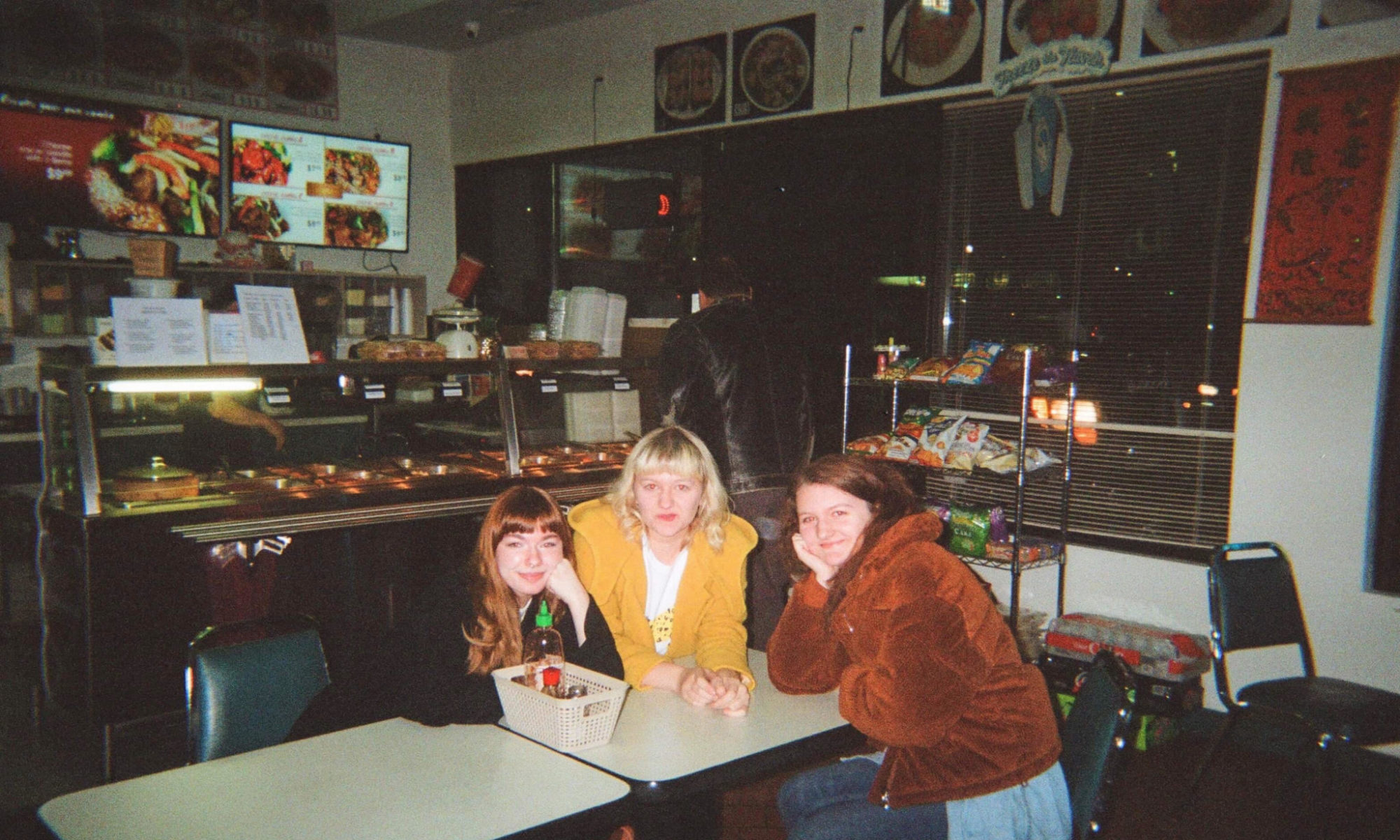By Jonathan Dyck

“I’ve always thought of Winnipeg as a place that has distinct boundaries, like you get with the Perimeter Highway,” Del Barber says, sipping a drink at popular Wolseley watering hole Cousin’s. Last May, Barber sold out his album release party for his debut, Where the City Ends, at the Park Theatre. Since its release, Barber and his backing band have been playing local gigs and, most recently, Barber set out on his own for his first tour north of the border.
Although he grew up in Winnipeg, Barber spent some time living and studying in Chicago, a city that constantly brought up comparisons with his home town. “In cities like Chicago, you never know where the end is. Suburbs stretch as far the eye can see. I grew up in St. Norbert, where that line [between rural and urban life] seems blurrier. My high school was right on the southern tip of Winnipeg—half rural, half city kids. The river is also right there, so I grew up paddling that river all the time. One way leads downtown, the opposite direction leads to the country.”
Like other gutsy folk artists, Barber has learned to channel the ambiguity of his upbringing through songwriting. “I always felt a little two-faced—like I couldn’t be sincere either way and it was confusing, still is,” Barber says. “The songs [on Where the City Ends] express that state of confusion and I like that about them. I have roots and a sense of place but it’s not easy to narrate in a straightforward way.”
For Barber, the tension between urban and rural has much to do with the kind of music he grew to love and, consequently, the songs he started writing. “Folk and country music have a really hard time not coming off as kitschy or contrived because they sort of make too much of their histories and I don’t know if I really believe [the artists] mean what they say.”
“I want to imitate people in a way that’s not lazy,” Barber says. “There are traditional forms in country and folk music that you can enter into. The forms aren’t static things. For me, writing music is about learning to find myself in the tradition and marveling at albums like [Bruce Springsteen’s] Nebraska.”
Barber recently returned from touring eastern Canada, where he was featured at NXNE and brought into contact with other like-minded musicians. “I’ve toured the eastern and southern states to no great success—you know, fraternity parties and stuff—but this time around I’ve shared the bill with some great artists like the guy from Cuff the Duke and the Sunparlour Players,” Barber says.
These days it can be pretty tough for singer-songwriters to catch a break. Not only are there a lot of up-and-coming solo musicians but, according to Barber, the singer-songwriter title has become an unfortunate cliché that audiences have become accustomed to writing off. “I guess I don’t expect people to take singer-songwriters seriously. I don’t know if it’s the fault of the performers or the fans,” Barber says.
Still, Barber seems to enjoy flying solo and making do without a backing band. “I’m getting used to playing alone and trying to turn heads. With a band you don’t perform as much or tell stories like you would on your own.” Storytelling is an important craft for those who still consider themselves part of the country music tradition and, with his recent tour, Barber has become more aware of its importance. “I think about a quarter of my set on tour was just storytelling. Before [going on tour] I had this idea that I was supposed to be mysterious, like I was hiding something, but I’ve started doing the opposite and give people more than they’re comfortable with.”
For Barber, this means allowing for more interaction between him and the audience while he’s on stage. “I’m trying to show the audience that there’s an exchange happening between us,” Barber continues. “Bands like Arcade Fire have a more communal relationship with their audiences and, to me, that’s what’s so folksy about indie rock. That’s the country tradition being played out in another genre.” And for Barber this mutual exchange is one of the ingredients missing from most singer-songwriter performances. “I don’t think people expect to get that sense of community from a singer-songwriter, but I hope they realize that they’re giving something back. That’s something I hope comes across when I’m performing.”
Having just released his first album a couple months back, you might think Del Barber would be ready to take a break but, from the sounds of it, he’s even more ambitious than before. “I already have a new album finished,” Barber reveals, “and I’m hoping to record again soon.” Though Barber’s career as a folk musician has been an uphill battle, he gives no signs of slowing down. “I want to put out a new record every year for the next four years. That’s my goal.”

